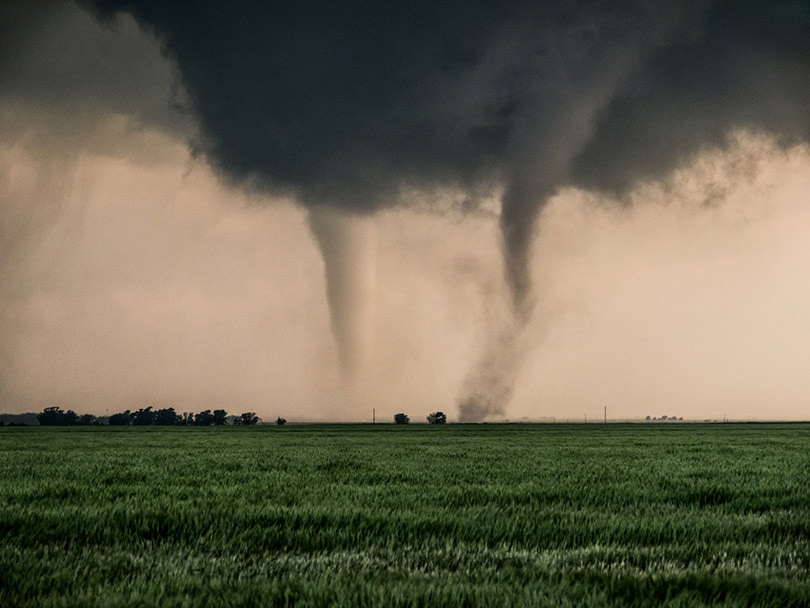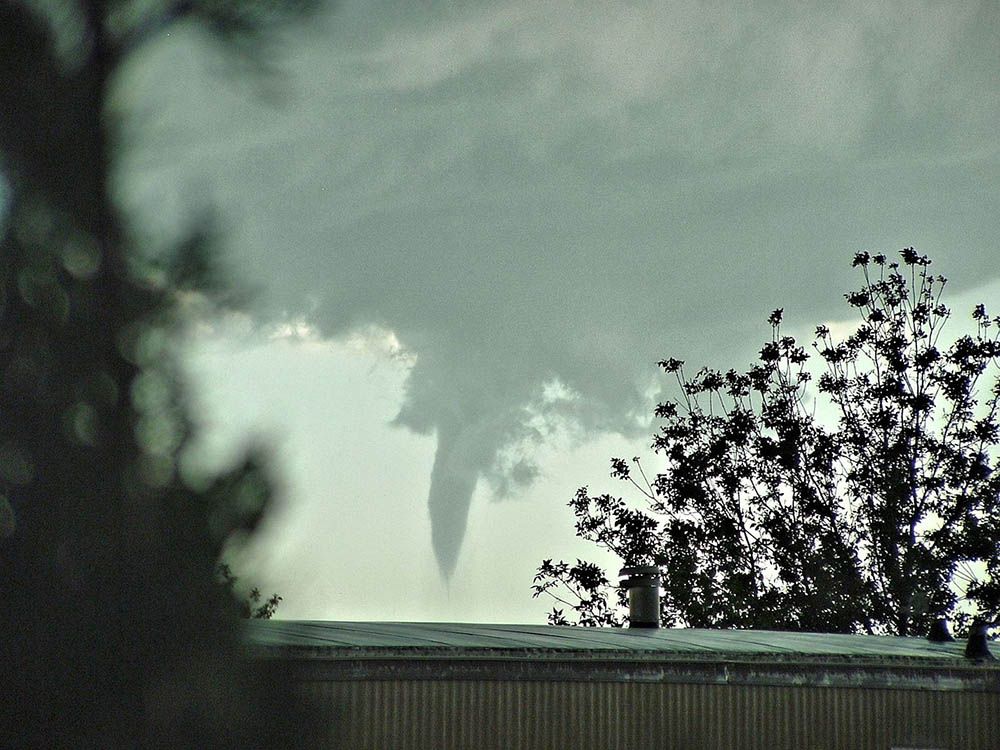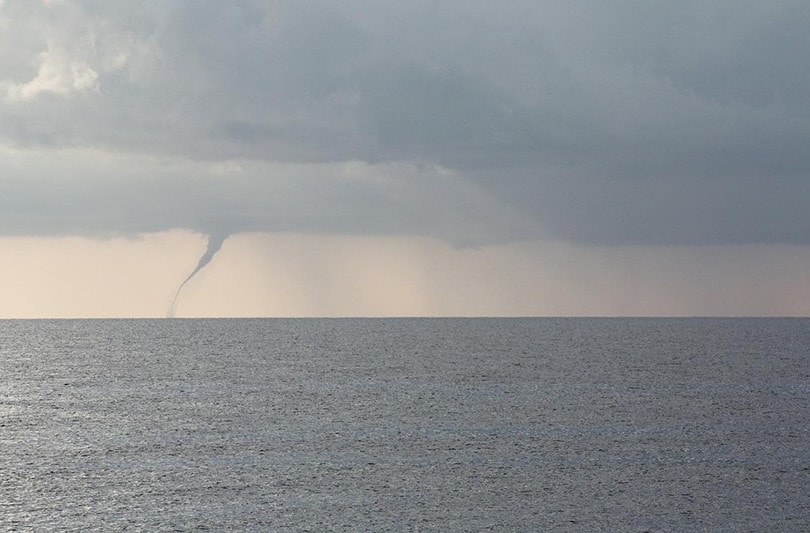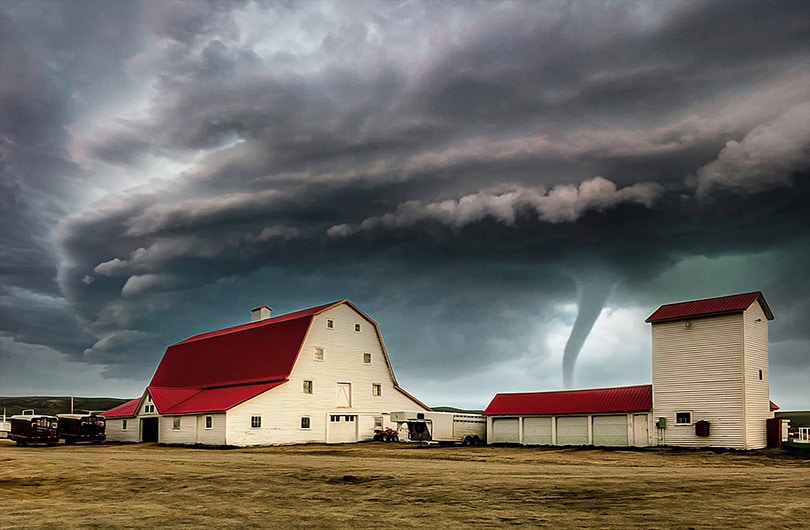How Loud Is a Tornado In Decibels (dB)? With Sound Comparison Chart
-
Visnja Radosavljevic
- Last updated:

Tornados are extremely dangerous, and they can cause serious issues wherever they occur. With a sound that can reach 130 decibels and the energy that concentrates in one area, they can uplift anything in front of them causing vehicles to become airborne, ripping off roofs, breaking windows, and damaging your hearing.
Due to their strength, tornadoes and their sounds can cause severe health issues, leading to deafness. This article will help you learn more about how loud a tornado is and what kind of impact a tornado sound could have on your hearing.
How Does a Tornado Sound?
There’s not just one sound we could use to describe a tornado. The typical sounds from tornados represent a combination of roars, rumbles, and whirs. Their sound will vary depending on the tornado’s strength, size, and proximity to you.
The tornado sound can resemble a train or a jet taking off, while others say it sounds like a waterfall or a swarm of buzzing bees. Still, many people cannot comprehend tornado sounds because of how loud they can be. Due to their loudness, it’s sometimes impossible to hear a specific tornado sound. They have infrasounds that our hearing cannot recognize plus the sounds from all the debris being blown around.

Tornado infrasounds
Infrasounds are sounds that tornadoes produce that are not audible to us, although some people can feel them and some animals can sense them.
Due to modern technology, scientists can sometimes detect the infrasounds 10 minutes before the storm. With the technology developing, we might even have devices that could predict tornadoes accurately before they happen.
Why Are Tornadoes So Loud?
Since the air in the tornado vortex is rapidly rotating, it gets very loud. You already know the sounds of winds when driving or when it’s bad weather, so just imagine that sound multiplied. As the tornado moves, it picks up vehicles, debris, and damages houses, adding to its noise level.
Also, the noise will not be the same at different distances from the tornado. It typically becomes audible around 1.5 miles from you, although there are silent tornados, so this is not the best way to protect yourself from it.
Can you hear a tornado coming?
As not all tornadoes sound the same, and some might not even produce any sounds, this is not a reliable way of indicating if there’s a tornado coming your way or not. According to a study from Storm Track out of 92 tornadoes—only 14 make sounds!
The National Weather Service is always on the lookout for tornadoes and other natural disasters, so even though you cannot hear a tornado, you will know if there’s one in your area. If you hear a tornado warning, it would be best to seek shelter where you can wait until the tornado is over.

How long does a tornado last?
Typically, tornadoes can last anywhere from a couple of minutes to a couple of hours. Throughout history, there have been many long-lasting tornadoes in the USA, although most last for about 10 minutes.
Safe Sounds for Humans
Our hearing is quite sensitive, and any sounds louder than 70 decibels could have an impact on it. Even sounds of 70 decibels can become annoying and create hearing issues if you listen to them for more extended periods. Louder sounds beginning at 80 decibels may start to irritate you, and they can also hurt your hearing.
Imagine what a tornado sound could do to your hearing at 130 decibels! Any sound as loud as 120 decibels or more will do immediate damage and could cause permanent hearing loss.
When exposed to loud noises, the problems they cause can be severe and it can be hard to recover from them. The louder the sound and the closer you are to it means more damage to your hearing. We all expose ourselves to harmful noises even without realizing it.
For example, listening to your favorite song on headphones could impact your hearing if the music is at the loudest volume. That’s why we should be cautious with the noise level we listen to each day.
How Can a Tornado Sound Affect Our Hearing?

A tornado sound can impact your hearing if you’re nearby, but it won’t harm you from far away. The list below will help you visualize the loudness of tornadoes compared to other familiar everyday sounds, from the quietest up to the loudest noises in decibels.
| Noise | Sound in decibels (dB) | Effect on hearing |
| Breathing | 10 decibels | These sounds are safe for our hearing |
| Rustling leaves | 20 decibels | |
| Whispering nearby | 30 decibels | |
| Bird calls, library sounds | 40 decibels | |
| Conversation | 50 decibels | |
| Background music, office noises | 60 decibels | |
| Tv, vacuum cleaner, washing machine | 70 decibels | These sounds can begin to annoy you |
| Dishwasher, garbage disposal | 80 decibels | |
| Power mower, subway train | 90 decibels | |
| Motorcycle, farm tractor | 100 decibels | Hearing loss can occur after 15 minutes of listening |
| Vehicle horn | 110 decibels | Hearing loss can occur after 2 minutes of listening |
| Chain saw | 120 decibels | You’ll experience pain and a critical hearing injury |
| Tornado | 130 decibels |
When exposed to loud sounds you can suffer from hearing damage, or even hearing loss. When it comes to tornado sounds, if you’re far away from it, you shouldn’t suffer from any issues, but when close to the tornado, you could permanently injure your hearing.
In case of a tornado, other than protecting yourself and your loved ones from physical damage, you should also protect your hearing to ensure no damage will be done.
Tornado Sound Compared to Other Natural Disasters

, Pixabay
Many natural disasters are extremely loud, so we compared them on a scale from the lowest to the highest noise level in decibels.
| Noise | Sound in decibels (dB) |
| Tsunami | 100 -125 decibels |
| Storms | 120 decibels |
| Tornado | 130 decibels |
| Karatoa vulcanic eruption | 172 decibels |
| Earthquake (5 Richters in the epicenter) | 235 decibels |
As you can see, some natural disasters are quieter than tornadoes while some are louder. Tsunamis and storms are less noisy, although their sound could still damage your hearing.
On the other hand, the most audible volcanic eruption (Krakatoa volcano) and earthquakes with a 5 Richter scale in the epicenter could rupture your ears, cause pulmonary issues, or even burst your lungs!
What Should I Do During a Tornado?
Since tornadoes can quickly develop, it’s essential to have some kind of safety strategy if a tornado appears in your area. As tornadoes can occur throughout the US, each region has tornado sirens that will inform everyone that a tornado is nearby.
Here are some tips on what to do in case of a tornado:
- Have a safe shelter where you can wait for the tornado to end
- Avoid shelter with windows and instead choose places such as basements
- Have a ready emergency kit
- Have a battery-operated radio or TV
- If needed, get under something sturdy
It’s essential not to panic and to be collected in these situations. So if there’s a tornado in your area, be calm and safely help your family find a suitable shelter where you and your hearing will be protected.
Conclusion
As you can see, tornadoes are pretty loud, and if you listen to one, you could suffer from hearing loss if the tornado is nearby. No damage will be done if you hear it from far away, though. Since tornadoes can cause more damage to your home, make sure you hide somewhere safe and wait until the weather gets better.
- “How far away can you hear a tornado?”
- “What does a tornado sound like?”
- “Noise sources and their effects”
- “What does a tornado sound like?”
- “A tornado’s secret sounds could reveal where it’ll strike”
- “Tornadoes, explained”
- “Severe weather 101 – tornadoes”
- “The online tornado FAQ”
- “Tornadoes – nature’s most violent storms ”
Featured Image Credit: Eugene R Thieszen, Shutterstock
Contents
